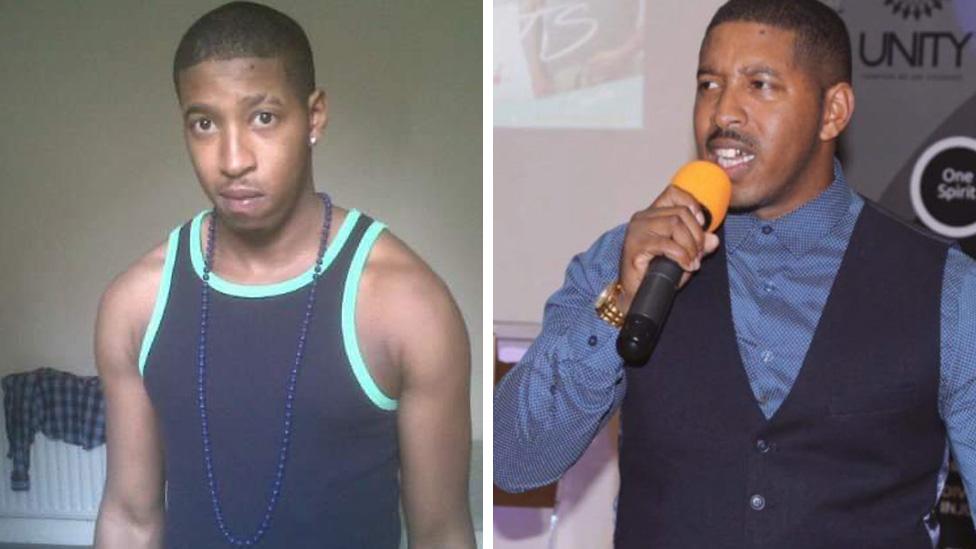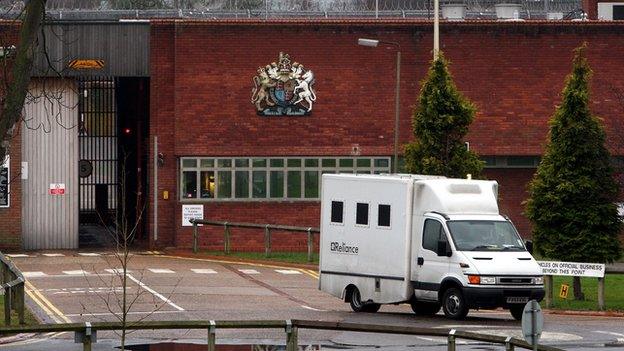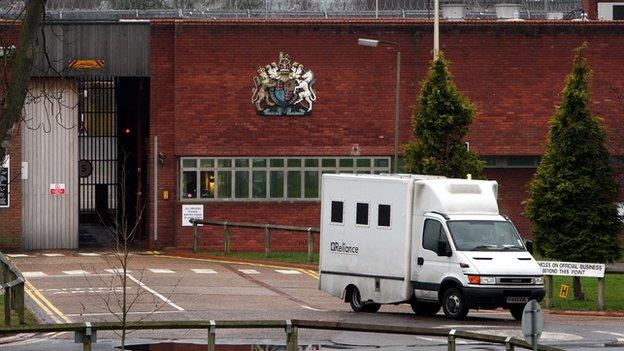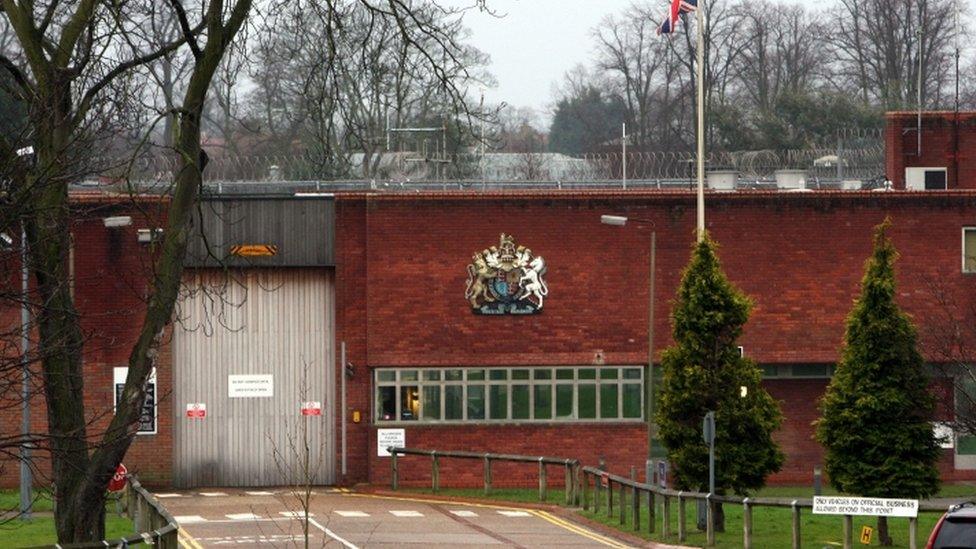'Being segregated as a youth offender made me want to hurt people'
- Published

Sephton when he was a teenager and now, at 30
"When I come out, I'm going to hurt people. I promise you. There's no ifs, buts, and maybes about it. I'm coming to hurt people."
That's how Sephton Henry felt while segregated in a young offenders institution. The former gang member says he was once held in a cell by himself for two weeks straight.
"You are taking away my life. You are putting me in a place of distress - and what do you think's going to happen when that kid is let free?" he asks.
Sephton was given drugs to sell at the age of eight. By the time he was 11 he was homeless. Around the age of 15 he was sent to a YOI for the first time. He says he didn't understand what was happening to him or where he was.
He recalls an occasion he was segregated in a YOI, held in a cell with just a metal bed frame "because in the daytime they wouldn't give you an actual mattress", he tells Radio 1 Newsbeat.
Sephton's experience echoes issues outlined in a new report by the Inspectorate of Prisons, which highlights the "harmful" impact separating children in YOIs from their peers can have on their mental health.
Sephton was once one of south London’s most notorious gang members.
The report looked at five YOIs holding about 600 men and boys aged 15 to 18.
The chief inspector of prisons in England and Wales said "in the worst cases children left their cells for just 15 minutes a day".
Based on his experience, Sephton says he understands there are occasions where children in custody need to be separated - it's usually for safety issues. But he believes a better approach is needed so they aren't left alone for such long periods of time.
He regularly goes into YOIs in an effort to rehabilitate people, and says some don't know how to explain what they've gone through.
"There's a lot of bravado that they carry, and they end up saying things that they don't actually mean because… they have a lot of mental health issues.
"So when someone's put in a segregation block…. and treated like an animal, that person then is going to react one way or the other."
The topic of prisoner welfare is controversial and some people believe that the focus should lie on punishment.
"My thing is, have you been shot in your face?" Sephton says.
"Have you slept on kitchen floors? Have you eaten beans from a tin, because you have no food? Have you put water in your cornflakes because you have no milk?... You've got to understand that each person goes through something that causes them to be the way they are. You can't punish your way out of this."

Feltham was one of the five YOIs inspected
The 30-year-old says that becoming a Christian helped him turn his life around. He's now set up an organisation called Unity that helps former inmates.
Aside from the UK, he's also travelled to America to help prisoners in Californian jails, and has worked with inmates on death row.
Following the report into YOIs the chief inspector of prisons in England and Wales said the policy of separating children from their peers amounted to "harmful solitary confinement", and the government says it will make "immediate changes".
Responding to the study by the Inspectorate of Prisons, Justice Minister Wendy Morton said: "It is difficult to read this report and not conclude that we are failing some of the children in our care."
For Sephton, the solution is sending mentors into prison.
"We have to find a way to deal with people's internal battles," he says.
"We've got to understand prison is a very dangerous place - a good man can go into prison, and come out bad."


Follow Newsbeat on Instagram, external, Facebook, external, Twitter, external and YouTube, external.
Listen to Newsbeat live at 12:45 and 17:45 weekdays - or listen back here.
- Published21 January 2020

- Published28 December 2019

- Published30 October 2019
